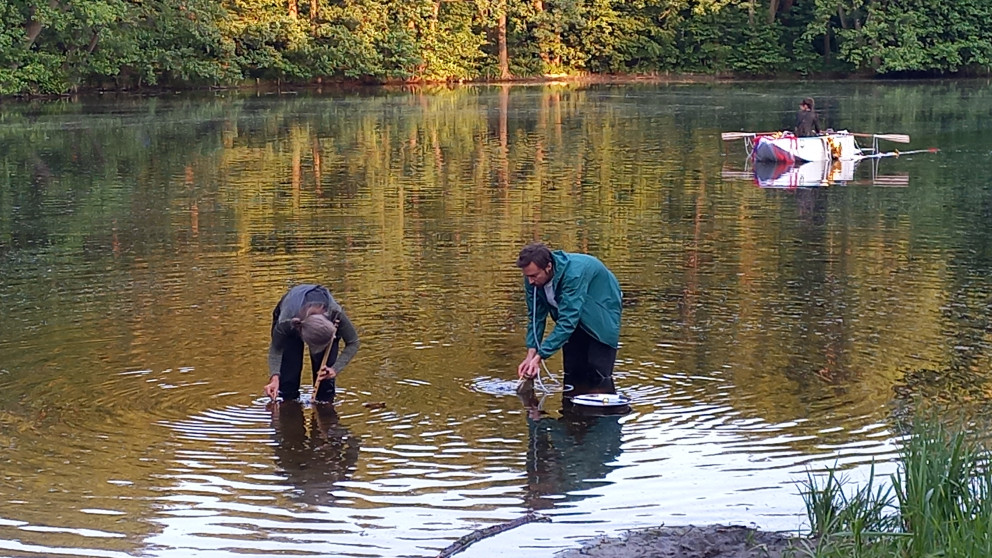Climate | Sound | Transformation. New Discursive and Experiential Spaces Between Music and Science
03.09.2024

Report on a joint conference of the RIFS, Kulturlabor Klanglandschaften and Potsdam University
What can artistic perspectives contribute to climate comunication? What can dialogue and cooperation between creative artists and researchers in the natural sciences, social sciences and humanities bring about? These questions stood front and centre at the conference "Climate | Sound | Transformation. New Discursive and Experiential Spaces Between Music and Science”, which was jointly organised by the RIFS, Klanglandschaften Festival, and the University of Potsdam.
Taking place from 13-16 June, the conference opened on the evening of 13 June in the ballroom of the Kleist Villa at the RIFS. In her keynote lecture, Prof Dr Birgit Schneider took a closer look at the challenges involved in communicating about the climate crisis. Schneider outlined the potential of sound as a medium for climate communication and highlighted the possibilities inherent to non-visual sensory systems, using a series of contemporary and historical examples. The lecture offered plenty of food for thought and lively debate at the later reception in the institute’s garden.
The programme of events held in the University of Potsdam’s auditorium over the following two days presented scientists and artists side by side. Highlights included presentations on the use of sound as a research tool in acoustic ecology, as a medium for the communication of climate data (Prof Dr Hubert Wiggering and Kurt Holzkämper), and as a means to connect with non-human beings and explore other temporal dimensions (Tania Rubio and Sandeep Bhagwati). The lectures were complemented by various performances (by Kirsten Reese and Sabine Vogel, among others), contributions from students and a science slam.
Saturday afternoon saw several presentations and a panel discussion on current research in musicology. The speakers highlighted the links between music research and ecological issues as well as the transformative potential of music research. The conference concluded with a wrap-up discussion focussing on several issues that deserve further consideration – among them, the compatibility of artistic approaches that promote sensual, mindful interactions with nature, on the one hand, and the need to clearly communicate the urgency of the climate crisis on the other (mindfulness and emotionality vs. "reason" and urgency), the relationship between cultural and ecological diversity in the context of the climate crisis, and the role of sustainability in artists’ marketing activities.
On the final day, the centre of activity shifted to Mühlenbeck in Oberhavel, where the Klanglandschaften Festival took place, featuring an outdoor programme of concerts, lectures and audio walks titled: Tonlandschaften: To the earth. The results from these four inspiring days will be published in an anthology, which is scheduled for release in spring 2025.